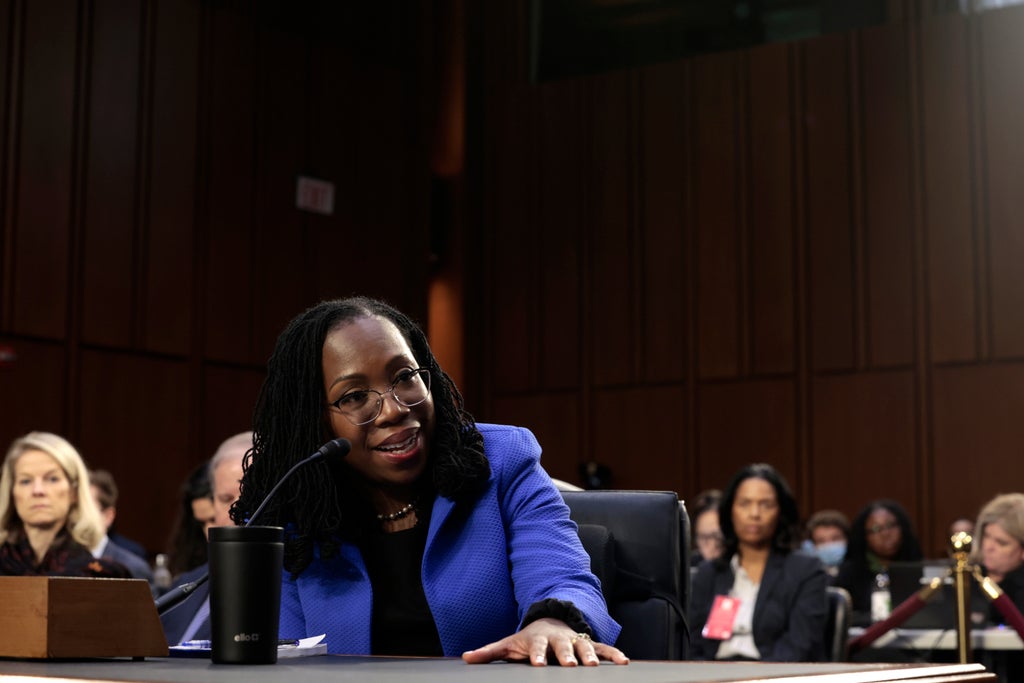
Former president Donald Trump railed against Judge Ketanji Brown Jackson, specifically criticising how she responded to Republican senators’ questions earlier this week during her Supreme Court confirmation hearing.
Mr Trump spoke at a rally in Commerce, Georgia, where he railed against Republican incumbent Gov Brian Kemp, but took time to criticise Ms Jackson, a judge who has frequently ruled against him before her nomination to the Supreme Court.
“Judge Jackson was unbelievably disrespectful to Republican Senators that in many cases were really nicely asking questions,” he said. “She had total disdain and even hatred for them.”
Republicans senators — including Sen Josh Hawley of Missouri and Ted Cruz of Texas, who also led the charge to object to the 2020 presidential election results — repeatedly asked Ms Jackson about her sentencing for people convicted of possessing child sex abuse images, which they believed was too lenient.
In addition, Mr Cruz asked her about critical race theory and whether it factored into he rulings as well as whether she knew it was being taught at Georgetown Day School, where she is on the board.
Mr Trump also said Ms Jackson was proud of the fact that she ruled against him.
“And I understand the fact that she’s very proud of the fact that she never once voted to support President Trump on anything, she always voted against me and she brags about it,” he said with the audience booing when he said she said “’I always voted against Trump.’ How about that? Is that nice?”
In 2019, Ms Jackson, then a judge for the United States District Court for the District of Columbia, rejected claims that former White House Counsel Don McGahn could not assert absolute immunity from a subpoena to testify before the House Judiciary Committee, writing that “Presidents are not kings.”
During her confirmation, she was asked about the ruling.
“The framers decided, after experiencing monarchy, tyranny, and the like that they were going to create a government that would split the powers of a monarch in several different ways,” she said. “One was federalism. It was vertical, they would split the powers between the federal government and states. Another was to prevent the federal government from itself becoming too powerful from having all of the authorities from having legislative, executive and judicial authority concentrated in one place.”
In that same position, she also ruled against the Trump administration’s attempt to expand fast-track deportations.
The Senate Judiciary Committee will vote whether to confirm Ms Jackson on April 4.







